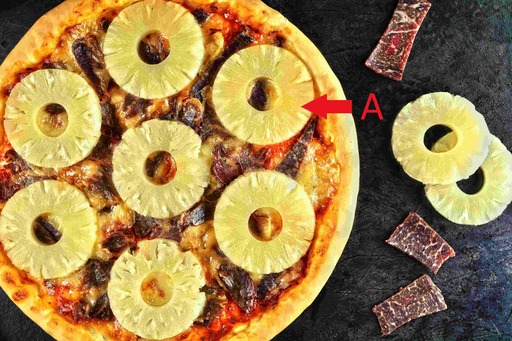Introduction
Designed to test a comprehensive understanding of basic surgical sciences, the Generic Surgical Sciences Examination (GSSE) serves as a gateway for those embarking on their surgical careers.
The exam (other than the anatomy spots) is based solely on multiple-choice questions (MCQs).
In this blog, we’ll explore practical tips, key strategies and principles to help you master the technique of sitting the GSSE MCQs and optimize your preparation.
1. Understanding the GSSE Exam Format

The GSSE consists of two 150-minute online exams held over two consecutive days, with no reading time, or penalties for incorrect answers.
The first exam (Anatomy) accounts for 50% of the total mark and includes 60 Type X MCQs and 20 anatomy spot test questions. Type X MCQs, worth up to 4 marks each, cover categories like the abdomen, CNS, and limbs, while spot test questions are worth 8 marks each.
The second exam (Pathology & Physiology) also contributes 50% of the total mark, with 125 MCQs split evenly between pathology and physiology topics.
These include Type A, B, and X questions, with Type X being the most heavily weighted. Exams are conducted online, with flexible navigation, randomised questions, and automatic answer saving.
Type A MCQs:
- Require selecting the single most appropriate answer.
- Each correct answer is worth one mark.
- Example:
- The most appropriate reason to avoid pineapple on pizza is:
A. It makes the pizza soggy.
B. It doesn’t pair well with cheese.
C. Some people find the sweetness unpleasant.
D. It’s a controversial topping choice.
The most appropriate reason to avoid pineapple on pizza is:
A. It makes the pizza soggy.
B. It doesn’t pair well with cheese.
C. Some people find the sweetness unpleasant.
D. It’s a controversial topping choice.
E. All of the above
Answer: E
Type B MCQs:
- Tests the relationship between a statement (S) and a reason (R).
- Candidates determine if S and R are true and whether R explains S.
- Each correct answer is worth one mark.
Example
S: Pineapple on pizza is controversial as a topping choice
because
R: Some people have psychopathic tendancies
A. S is true, R is true, and R explains S.
B. S is true, R is true, but R does not explain S.
C. S is true, R is false.
D. S is false, R is true.
E. Both S and R are false.
Answer: A (both statements are true, and R explains S).
Type X MCQs:
- Consist of a stem and four distractors.
- Candidates determine if each distractor is true or false.
- Each correct response earns one mark, with up to four marks per question.
Regarding pineapple on pizza, the following statements are true or false:
1. Pineapple was first added to pizza in Italy.
2. It is considered an acceptable topping in Hawaii.
3. Pineapple on pizza is universally loved.
4. The sweetness of pineapple contrasts with the saltiness of ham.
Answers:
FTFT (it originated in Canada).
Spot Test Questions:
- Require short text answers (up to 10 words).
- Linked to illustrations and worth a total of eight marks.
MCQs may include visual aids like radiographs, histology micrographs, or CT scans.
Example
What is A?

Answer:
A cry for help.
2. Effective Strategies and Principles for Tackling MCQs
1. Keep It Simple
- Take an orthodox approach to questions
- Focus on what typically happens, not rare exceptions
- Answer as if explaining to a medical student
- Don’t overthink or read more into questions than necessary
2. Pay Attention to Language
- Watch for key words in question stems – they apply to all options
- Be careful not to miss the word “not”
- Terms like “typically” or “characteristically” are important qualifiers
- Be wary of absolute terms (“always,” “never,” “invariably”) – these often signal incorrect options
3. Answer What’s Asked
- Stick to the present – avoid future projections
- Don’t consider hypothetical scenarios
- Focus on the mainstream, not exceptions
- Stay away from intellectual side-tracks
4. Pattern Recognition
- Long, detailed options are usually correct
- Questions about general principles often have multiple correct answers
- Lists of examples tend to have more true than false options
- Common topics (like apoptosis, T-cell reactions) frequently recur
- Complete the set of past questions, as there is a limited pool and they are re-used
5. Question Construction
- Questions asking for lots of detail often have more correct answers
- Complex biological processes rarely have absolute answers
- Terms like “frequently” and “commonly” are used deliberately
- “Generally accepted” usually refers to standard textbook knowledge
6. Pro Tips
- If you encounter double negatives, rephrase the stem as a positive
- Remember that longer lists of options tend to have more correct answers
- Textbook answers are usually what examiners are looking for
- Focus on clear, established medical knowledge rather than cutting-edge research
3. The Role of Guessing in the GSSE

- Let’s talk strategy when you’re unsure about an MCQ answer. Since the GSSE doesn’t penalize wrong answers – you should always answer every question.
- Random guessing can work in your favor, yielding around 42% in a typical RACS paper (that’s about 50 marks out of 120). So really, you just need to KNOW
- While the RACS no longer publishes their question banks, historical data from their last published collection (1997) provides valuable insights into Type X question patterns. Although this data is from an older publication, the fundamental structure of GSSE questions remains similar.
- In a study of 217 Type X questions:
- 10% had 1 correct option
- 30% had 2 correct options
- 33% had 3 correct options
- 27% had all 4 options correct
So, if a candidate marked all options as ‘true’ across all 868 individual Type X options (217 questions × 4 options), they would have achieved approximately 68% correct answers. Conversely, marking all options as ‘false’ would have resulted in only 31% correct answers.
This suggests that in Type X questions, options are more likely to be true than false. This tip never replaces real learning, however it puts you in the best position for getting through the exam.
4. Why Practice Questions Are Essential
- The GSSE isn’t just about memorizing facts – it’s about applying knowledge under pressure. This is where practice questions become your best ally.
- Currently, GetThru Premium has a 100%* success rate for examinees.
- Think of each practice question as a mini-simulation of the real exam, training your brain to think critically and respond efficiently.
- This is why we’ve designed Get-Thru’s question bank specifically for the GSSE format. Each practice session helps identify knowledge gaps, improves your time management, and builds confidence in tackling exam-style questions.
- Our detailed explanations don’t just tell you if you’re right or wrong – they help you understand the underlying concepts, making your study time more efficient and effective.
- Whether you’re months away from your exam or in the final countdown, regular practice with targeted questions is your pathway to GSSE success.
Go forth and succeed.
GetThru is the GSSE Survivalist's best companion

Leave a Reply